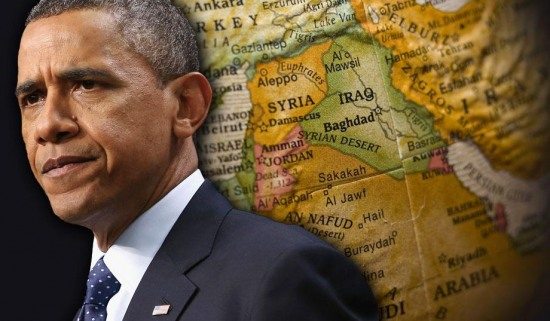Obama’s primary goal seems to be to get out of office being able to say that he had shrunk America’s involvement in Iraq and Afghanistan, prevented our involvement on the ground in Syria and Libya, and taught Americans the limits of our ability to fix things we don’t understand, in countries whose leaders we don’t trust, whose fates do not impact us as much as they once did.
After all, the president indicated, more Americans are killed each year slipping in bathtubs or running into deer with their cars than by any terrorists, so we need to stop wanting to invade the Middle East in response to every threat.
That all sounds great on paper, until a terrorist attack like the one Tuesday in Brussels comes to our shores. Does the president have this right?
Visiting here in northern Iraq, in Kurdistan, and talking to a lot of Iraqis leaves one thinking Obama is not entirely wrong. Sitting through a forum at the impressive American University of Iraq, Sulaimaniya, and watching Iraqi leaders squabble and point fingers at one another did not leave me wanting to buy a lot of stocks on the ISX, the Iraq Stock Exchange.
I was most struck by the moment when Sheikh Abdullah Humedi Ajeel al-Yawar, head of the giant Shammar tribe, centered in what is now ISIS-occupied Mosul, stood up in his elegant robes, looked at Iraq’s oil minister and asked: “What happened to the $700 billion [in oil money]that came to Iraq, and not a single bridge was built? What happened to this $700 billion? We are asking this from the heart.”
He got the loudest applause all day. We can’t stabilize Iraq or Syria if their leaders won’t share power and stop looting.
But sitting here also makes you wonder if Obama hasn’t gotten so obsessed with defending his hand’s-off approach to Syria that he underestimates both the dangers of his passivity and the opportunity for U.S. power to tilt this region our way — without having to invade anywhere. Initially, I thought Obama made the right call on Syria. But today the millions of refugees driven out of Syria — plus the economic migrants now flooding out of Africa through Libya after the utterly botched Obama-NATO operation there — is destabilizing the European Union.
The E.U. is America’s most important economic and strategic partner and the other great center of democratic capitalism. It amplifies U.S. power, and if it is hobbled, we will have to do so much more on our own to defend the free world.
We and the E.U. together have got to think about how to create safe places in Libya and Syria to stem the refugee tide before it breaks the E.U. History will not be kind to Obama if he just turns away.
At the same time, Obama has an opportunity that no U.S. president ever had before. Two fledgling democracies have emerged in the Middle East —on their own. One is in Tunisia, whose civil society leaders won the Nobel Peace Prize, after writing the most democratic constitution ever in the region. But today guns, refugees and Islamist terrorists coming from Libya, which we recklessly uncorked, are helping destabilize the Tunisian experiment.
The West should be all over Tunisia with economic, technical and military assistance. “Tunisia is a start-up democracy,” its former Prime Minister Mehdi Jomaa told me. “It may be small, but its leverage for the future of the region is enormous. I can’t imagine any stability in the region if Tunisia doesn’t succeed.”
The other self-ignited democracy experiment is Iraqi Kurdistan, where the Kurds on their own built an American-style university in Sulaimaniya, because they want to emulate our liberal arts, and just opened a second American University, in Dohuk. But tiny Kurdistan today is hosting 1.8 million refugees from other parts of Iraq and from Syria, and with low oil prices, it’s almost bankrupt.
The Kurdish government, which was allowing a strong opposition party to emerge and a free press, is now backtracking, with its president, Massoud Barzani, refusing to cede power at the end of his term, and the stench of corruption is everywhere. The Kurdish democratic experiment is hanging by a thread. More U.S. aid conditioned on Kurdistan’s getting back on the democracy track would go a long way.
“It is one big game of survivor out here,” said Dlawer Ala’Aldeen, president of the Middle East Research Institute in Kurdistan. “America needs to constructively engage the Kurds, offer them conditional help and make them the partner that America deserves. Here, everyone listens to and likes America. [The Kurdish] people want America to protect them from Iran and Turkey.”
Kurdistan and Tunisia are just what we dreamed of: self-generated democracies that could be a model for others in the region to follow. But they need help. Unfortunately, Obama seems so obsessed with not being George W. Bush in the Middle East that he has stopped thinking about how to be Barack Obama here — how to leave a unique legacy and secure a foothold for democracy … without invading.

